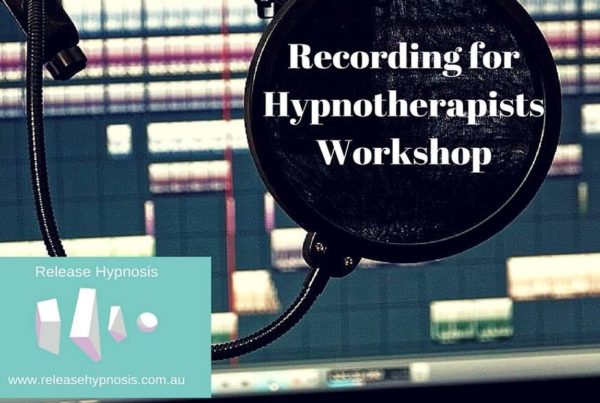The Neuroscience of Gratitude and Effects on the Brain: Unlocking Mental Resilience
Gratitude, often seen as a simple “thank you,” holds profound power to reshape our brain, boost emotional well-being, and enhance overall quality of life. In the past two decades, neuroscientists have delved deeper into this age-old practice, uncovering how gratitude not only uplifts our spirits but also fundamentally rewires our brain. Understanding the science behind gratitude helps us appreciate its immense value. Gratitude is not just a nicety; it is a transformative practice that enhances both mental and physical health. In this blog, we’ll explore the neuroscience of gratitude, and how it impacts the brain, emotional well-being, and relationships, and provide practical exercises to cultivate this life-enhancing habit.
Understanding Gratitude
Gratitude is more than a fleeting feeling; it is a state of recognition for the good that exists in our lives, whether stemming from a kind gesture, nature’s beauty, or life’s simple pleasures. Rooted in the Latin word gratia, meaning grace or thankfulness, gratitude spans across cultures and religions as a cornerstone of a fulfilling life.
Historically, philosophers like Cicero dubbed gratitude the “mother of all virtues.” Today, science validates its transformative effects, providing a bridge between spiritual wisdom and tangible psychological benefits. From its role in ancient practices to modern applications, gratitude has been pivotal in enhancing human well-being.
The Neuroscience of Gratitude
How Gratitude Affects the Brain
Modern neuroscience reveals that gratitude engages the brain’s reward system, particularly the ventral tegmental area and the medial prefrontal cortex, regions associated with pleasure and decision-making. Moreover, expressing gratitude releases serotonin and dopamine, the neurotransmitters that foster feelings of contentment and happiness.
Research shows that these neurochemical changes not only elevate mood but also improve overall cognitive functioning. The regular practice of gratitude can enhance decision-making processes, reduce impulsivity, and foster a balanced emotional state, making it a powerful tool for mental clarity and focus.
Neuroplasticity and Gratitude: A Dynamic Duo
One of the most compelling findings in neuroscience is the brain’s plasticity—its ability to reorganise itself by forming new neural connections throughout life. Gratitude enhances this capability. Regular gratitude practice strengthens pathways associated with positive thinking, helping to create a more optimistic and resilient mindset.
Dr. Alex Korb highlights that gratitude reshapes the brain’s focus, encouraging a shift from problems to solutions. This rewiring not only bolsters emotional resilience but also fortifies the brain against stress and negativity, proving that gratitude is a cornerstone of mental flexibility.
Gratitude and Emotional Well-being
Gratitude as an Antidote to Anxiety
Gratitude acts as a powerful counterbalance to negative emotions. Studies have shown that regular gratitude practices can significantly reduce symptoms of anxiety. The brain’s prefrontal cortex, pivotal in regulating emotions, is positively influenced by gratitude, leading to improved emotional resilience.
By redirecting focus to positive experiences, gratitude diminishes the power of worry and fear. This mental shift allows individuals to develop healthier coping mechanisms, reducing the frequency and intensity of anxious thoughts, ultimately fostering a more balanced emotional state.
Depression and the Healing Power of Gratitude
Depression often narrows our perception, focusing on negative aspects of life. Gratitude can counteract this by broadening one’s emotional scope. The practice of gratitude stimulates the brain’s reward system, which is often underactive in those with depression, fostering feelings of hope and joy.
Research at UCLA’s Mindfulness Awareness Research Centre confirms that gratitude improves neuroplasticity, aiding recovery from depressive episodes. This demonstrates that gratitude not only lifts mood but also builds long-term resilience against future depressive states.
The Physical Benefits of Gratitude
Stress Reduction and Cortisol Regulation
Gratitude has been shown to lower cortisol levels, the hormone responsible for stress. High cortisol levels over time can lead to chronic health issues such as hypertension and weakened immune function. By practising gratitude, individuals experience a marked reduction in stress, translating to better heart health and enhanced immunity.
Moreover, gratitude promotes healthier blood pressure levels and heart rate variability, crucial indicators of cardiovascular health. This physiological response highlights gratitude’s powerful role in reducing the physical impact of stress and improving overall wellness.
Enhanced Sleep Quality
Sleep is the cornerstone of good health, and gratitude plays a role here as well. The hypothalamus, a brain region involved in regulating sleep, is activated during expressions of gratitude. Studies have shown that individuals who maintain a gratitude journal experience better sleep quality and duration.
This improvement occurs because gratitude reduces intrusive thoughts and rumination, common culprits of sleep disturbances. As a result, practising gratitude can help individuals achieve a more restful and rejuvenating sleep cycle.
Gratitude in Social and Professional Contexts
Strengthening Personal Bonds
Expressing gratitude within personal relationships fosters deeper connections and mutual trust. Studies indicate that couples who regularly express gratitude towards each other report higher levels of relationship satisfaction and intimacy.
Gratitude helps nurture empathy and understanding, key components of any successful relationship. By focusing on appreciation rather than shortcomings, individuals can create more harmonious and supportive interpersonal dynamics.
Gratitude in the Workplace
In professional settings, gratitude is a catalyst for improved teamwork and productivity. Employees who feel appreciated are more engaged, motivated, and committed to their roles. Furthermore, leaders who express gratitude cultivate a positive work environment, boosting overall morale and reducing burnout.
Gratitude enhances workplace cohesion by fostering mutual respect and collaboration. This dynamic not only improves individual performance but also strengthens organisational culture, driving long-term success.
Practical Exercises to Cultivate Gratitude
The Power of a Gratitude Journal
Maintaining a gratitude journal is one of the most effective ways to nurture a grateful mindset. Each day, jot down three things you’re thankful for. This practice encourages reflection on positive experiences, however small, and gradually shifts your focus from what’s lacking to what’s abundant.
Journaling helps reinforce positive memories and creates a tangible record of blessings that can be revisited during challenging times. Over time, this habit cultivates a lasting sense of appreciation and mindfulness.
Gratitude Letters and Visits
Writing a letter of gratitude to someone who has impacted your life positively is a transformative exercise. Beyond writing, delivering the letter in person enhances the emotional experience, creating a lasting impression for both the giver and receiver.
This simple act of appreciation not only strengthens relationships but also fosters a deeper sense of connection and emotional fulfilment, making it a powerful tool for personal growth.
Challenges in Practising Gratitude
Overcoming Gratitude Fatigue
Gratitude fatigue occurs when the practice feels forced or inauthentic. To counter this, vary your gratitude exercises and focus on different aspects of your life. For instance, instead of listing generic items, dive deeper into why you’re grateful for specific experiences or people.
Exploring new gratitude practices keeps the experience fresh and meaningful, ensuring sustained engagement and preventing fatigue from diminishing its impact.
The Future of Gratitude Research
Emerging research continues to unravel the intricacies of gratitude. With advances in neuroimaging and artificial intelligence, scientists are better equipped to understand how gratitude interacts with the brain and body.
Future studies may reveal even more about the long-term effects of gratitude, offering new strategies for harnessing its benefits in mental health and well-being interventions.
Neuroscience of Gratitude
Gratitude is more than a fleeting emotion; it is a transformative practice with profound implications for mental, physical, and social well-being. By embracing gratitude, we can foster resilience, enhance our relationships, and lead a life marked by contentment and fulfilment.
Release Hypnosis Melbourne Hypnotherapy
Since 2015, Lawrence Akers has been working under the name Release Hypnosis offering Hypnotherapy and ACT based work to the people of Melbourne or an online service. Based on St Kilda Rd, Release Hypnosis is an easy and convenient location to get to and accessible by the ANZAC station train and tram stop. Release Hypnosis can help with a wide range of presenting issues, and I offer a free 30 minute no obligation discovery call for those who are unsure if hypnotherapy is the right way forward for them.
Book Your FREE 30 Minute Consultation With Release Hypnosis NOW!
You may also like to read:
Exploring Content-Free Hypnotherapy
The Journey to Becoming a Better Hypnotic Subject
Best Hypnotherapy Resources 2023: Release Hypnosis Top Blogs
What Is The Success Rate of Hypnosis?
Release Hypnosis Melbourne Hypnotherapy is accessible for people in: Abbotsford, Armadale, Albert Park, Balwyn, Bentleigh, Black Rock, Box Hill, Brighton, Brunswick, Bulleen, Bundoora, Camberwell, Canterbury, Carnegie, Caulfield, Chadstone, Cheltenham, Clayton, Coburg, Collingwood, Deer Park, Doncaster, Elsternwick, Eltham, Elwood, Epping, Essendon, Fairfield, Fitzroy, Footscray, Glen Iris, Glen Waverley, Glenhuntly, Greensborough, Hampton, Hawthorn, Heidelberg, Highet, Ivanhoe, Kew, Kooyong, Lalor, Laverton, Lower, Plenty, Macleod, Malvern, Middle Park, Moonee Ponds, Melbourne, Moorabbin, Mount Waverley, Murrumbeena, Northcote, Oakleigh, Ormond, Parkville, Pascoe Vale, Port Melbourne, Prahran, Preston, Richmond, Rosana, Sandringham, South Yarra, South Melbourne, Spotswood, St Albans, St Kilda, Surrey Hills, Templestowe, Thornbury, Toorak, Tullamarine, Williamstown, Yarraville, North Melbourne, Windsor, East Melbourne, Melbourne, Melbourne CBD, Melbourne 3004








